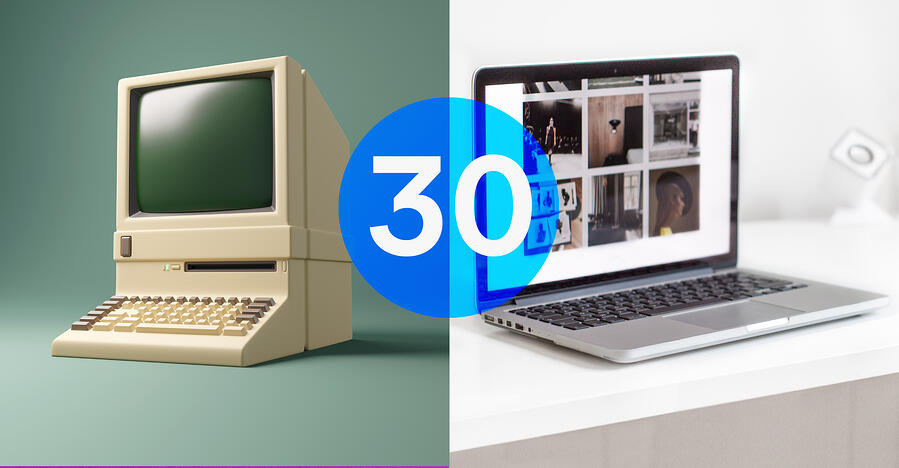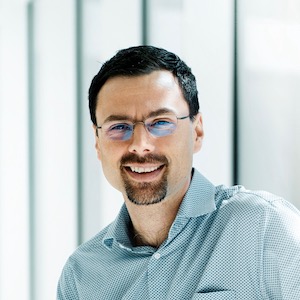
2021-08-06 04:09:45 Author: blog.avast.com(查看原文) 阅读量:42 收藏
Avast CEO Ondrej Vlcek looks back on the internet's development over the past three decades
Thirty years ago this week, Tim Berners-Lee published the first web page to the internet, kicking off a wave of excitement — and debate — about the potential for the world’s largest interconnected information system to open access to education, opportunity, discovery, and innovation. It would be a few years yet before I officially started my career in cybersecurity. At the dawn of the internet, I was young and idealistic, full of hope and promise as technology put the world at our fingertips. What began as a network for academics took off and went mainstream in the years following. By 1995, just shy of 40 million people were accessing the internet daily (mainly techies like myself), and while that might seem trivial today, few trends rival the growth of the internet or the changes it has brought to our world. 1995 was an exciting year for me as well: Microsoft introduced Windows 95, and I co-authored the first antivirus for that new platform. And coming out of the revolution from communism to democracy in the Czech Republic, I was excited about freedom in all forms, including in what we thought back then as “vast” cyberspace. But it was also the first year we saw just what was at stake for individuals who didn’t understand what they were getting into when they went online. As people started to test the boundaries of what was possible on the internet, we realized that it wasn’t going to be the Utopia we’d imagined. For all of its good and potential, bad actors could also harness its power to do harm in the form of malicious software and network intrusions. But the world’s first viruses were innocuous compared to what we see today. “Script kiddies” and self-proclaimed geeks learned to use weaknesses in networks and PCs to wreak havoc. Famously, the ILOVEYOU virus sent messages to your contacts professing love and spreading mayhem. Over the years, as internet use grew steadily, so too did the ranks of bad actors trying to exploit it. By Y2K (aka 2000), over 350 million people were using the internet daily. Reports of online exploitation continued to grow. The web was the Wild Wild West. Spam, worms, banking trojans, and specialized threats designed to gain access to networks and databases were everywhere. Malware was becoming more commonplace and it was pretty much impossible to go online without some sort of protection. The world needed a solution and in that moment, an industry was born. And I am happy to say that I was there when it happened! Me demonstrating Alwil’s Avast Antivirus in 2001. We would rename the company Avast in 2010. But it wasn’t until e-commerce began to bloom and online banking took off that alarm bells finally went off for many — the internet could be a dangerous place. We were selling our antivirus to computer enthusiasts worldwide, but we were only preaching to the choir — or, in our case, the type of person who immediately thinks of security or risk in almost any situation. At Avast, we simultaneously made two critical choices. First, we affirmed that our ethos was to protect everyone on the internet, which informed our second decision to make our product accessible and available free of charge. We worked to ensure that everyone had access to the best protection to facilitate a safer online experience. Twenty years later, we protect hundreds of millions of people worldwide and stop more than a billion threats per month. Today we find ourselves on the other side of a divide we once only imagined -- and a global pandemic has put a punctuation mark on the first thirty years of the web. We all helped our grandparents and parents bridge the literal digital divide as we rushed to usher them into the world of live internet video, social media, and personal services. The internet was our lifeline but, for many, one that came with unexpected barbs: more data breaches and loss, sophisticated social engineering attacks, less security, and more global powers -- including governments and corporate titans -- after our data and identities. In today’s world, the internet is not optional anymore. Take, for example, the state of California, where you will be fined on your state income taxes if you send a check. You are forced to pay online or risk higher taxes. In Germany, bank customers have to pay a fee to wire money from the bank counter -- but it’s free to do online. Customer service, many payment options, and even disability services are only available online. Like it or not, society has made the internet mandatory. If you were a vulnerable individual before, you are even more so now. There’s no doubt that we’ve made plenty of progress on the internet. And, for many, it’s proven to be a freeing experience, giving them access to data and democratized information like never before. However, Covid-19 also illustrated just how limited that access to data still is and how even now there are still far too many barriers. That’s why, decades beyond the early days of the internet (and Avast), we as a company remain committed to protecting people around the globe. Now more than ever, the internet provides an opportunity for the vulnerable, but only if they can get online and really participate. My belief is that we must look ahead to determine what we can do to create a truly inclusive internet. So far, we have been failing. For starters, there are still far too many people who cannot experience all the web has to offer because of lack of hardware means or living in a restricted location. But even absent those physical limitations, there’s a bigger, subtler problem. Consumers today basically only have two options: a censored web that prevents them from accessing certain information and where they pay with their privacy, or no web at all. Either option is dangerous. As a community, we must accept that digital rights are fundamental human rights. The same inherent inequity in society that separates those with means and those without is impacting the digital citizenry. We must find a way to break down that barrier to create a truly level playing field. Indeed, a digital divide with limited access to information and opportunity creates far more broad-reaching consequences than we could ever imagine. It’s also critically important that we speak up. We all know digital inequality exists, but few among us have the fortitude to discuss it. Let’s collectively speak truth to power on that digital divide and once and for all reveal it for what it is: modern-day suppression. That’s why I am so proud that Avast has been evolving well beyond being “just” a free antivirus provider. Through our innovative products like AntiTrack and Breachguard which allow people manage the privacy of their online data. But it doesn’t end with our products. We partner with organizations like the Coalition Against Stalkerware, which supports people whose partners have misused technology in order to control and abuse them. We also created Be Safe Online, a program that has taught digital citizenship to more than fifty thousand middle school students. And we recently launched the new Avast Foundation with the goal of developing programs to promote digital freedom for everyone, regardless of their monetary means or geographic location. As protectors of the internet we must break down censorship, expand access, and establish digital freedom as a fundamental human right. We owe it not only to ourselves, but also to the billions of people around the globe who will one day join us online. Let’s work together to make sure the next era of the web is more open and fair to everyone.WWW? Or Wild Wild West?
Internet access is not optional
People are being left behind
We can still unlock the potential of the internet for everyone
如有侵权请联系:admin#unsafe.sh
